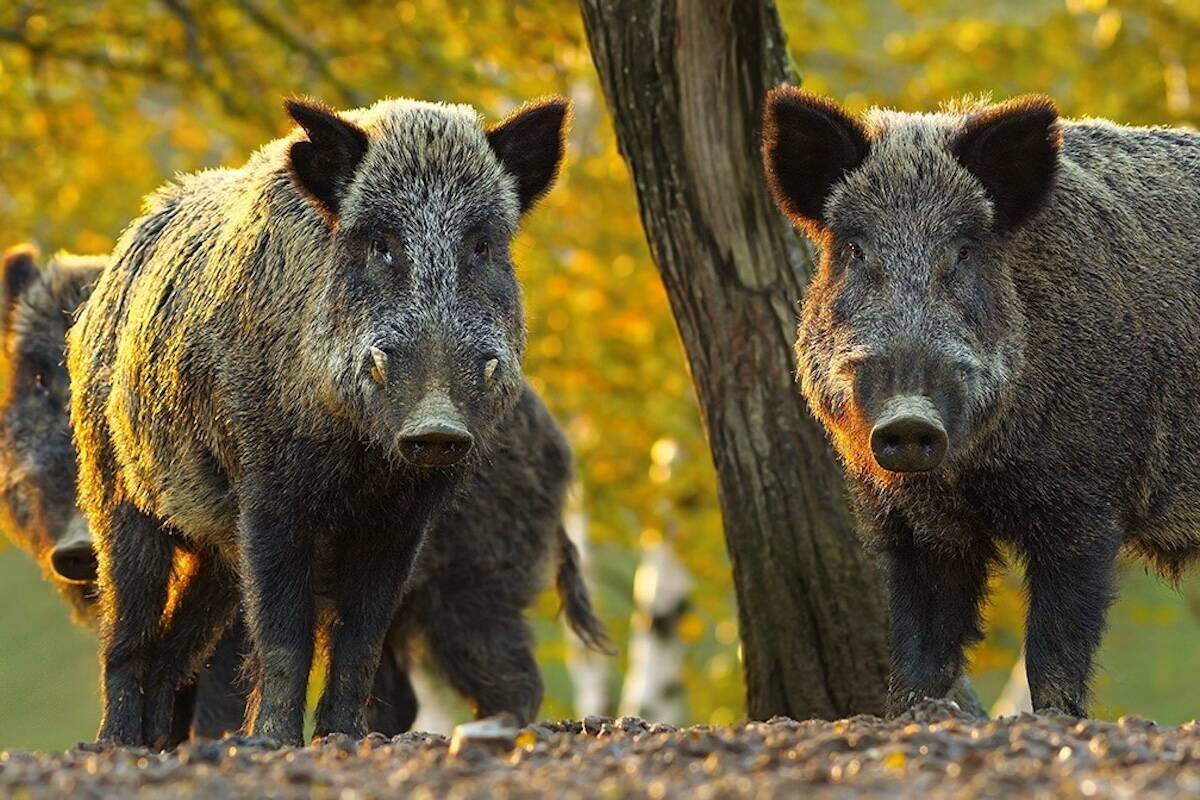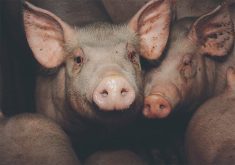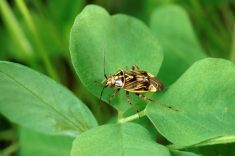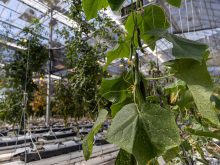Glyphosate-tolerant flax that hasn’t been “genetically modified” (GM) could be on the market by 2014, according to James A. Radtke, vice-president of product development for Cibus, an American plant trait development company.
If the $6-million project between Cibus, the Flax Council of Canada, and Agriculture and Agri-Food Canada is a success, Canadian flax growers will get enhanced weed control without losing markets in Europe where GM flax isn’t approved.
At the heart of the venture is Cibus’s Rapid Trait Development System (RTDS), which Radtke described to farmers attending the Manitoba Flax Growers Association’s (MFGA) annual meeting as “targeted mutagenesis.”
Read Also

Alberta cracks down on wild boar
Alberta has implemented strict new regulations to eradicate invasive wild boar. Learn about the 2025 ban on wild boar farming, new hunting restrictions for landowners, and the provincial compensation program for producers.
In mutagenesis, scientists force genes to mutate by exposing them to chemicals or radiation. Mutagenesis is how herbicide- tolerant Clearfield crops, Nexera canola, dwarf wheat and seedless grapes were developed.
“There are over 2,200 cultivars listed that were derived from mutagenesis programs over the years,” Radtke said, adding that regulators universally accept it.
Cibus has developed a process that allows scientists to change a specific gene that already exists in a plant to express a desired trait. It’s done by exploiting the natural systems in cells. Sometimes cells make mistakes when they replicate. Enzymes are produced to find and fix them.
After identifying the gene it wants to alter, Cibus produces a gene repair oligonucleotide (GRON) designed to create a mismatched base pair or a genetic error. The cell’s own natural repair process either replaces, inserts or deletes the designated nucleotide within the gene. Once the correction is made, the GRON degrades and the altered gene is expressed normally.
“RTDS is a spellchecker for the letters that make up the genetic code,” Radtke said. “So we can go in there and make single changes on the letters of the genetic code and in some cases they make a very significant change in the trait that’s being expressed.”
With RTDS, the altered gene, which is native to the plant, behaves normally. It’s different when a plant has been genetically modified, Radtke said. Foreign genes are introduced randomly and can disrupt how other genes work.
GM crops have higher development costs due to a more stringent regulatory approval process.
Europeans assessing
American and Canadian regulators agree RTDS is mutagenesis, not GM, Radtke said. European regulators are still assessing it.
“We are very confident we won’t have any issues at all in taking our technology into Europe as a non- GM technology,” he said.
Cibus’s sulfonylurea-tolerant canola, which it developed with BrettYoung Seeds, is close, Radtke said. “We have proof of concept with a (canola) plant that’s going forward with commercialization,” he said.
Glyphosate-tolerant flax is less advanced, but moving faster than some expected, Radtke said.
Cibus is working with germ-plasm from Canada’s three flax-breeding organizations – Agriculture and Agri-Food Canada, the Crop Development Centre and Viterra. The goal to get glyphosate tolerance into lines from all three, but getting it into one will allow the trait to be transferred through traditional plant breeding, Radtke said.
MFGA president Eric Fridfinnson said since glyphosate is already approved as a desiccant on mature flax, registration for its use on glyphosate-tolerant flax is expected to occur quickly.
Both Cibus’s RTDS technology and the genes converted by using it, are patented, Radtke said. How much farmers will pay for glyphosate-tolerant flax hasn’t been determined, nor has the mechanism for recouping the investment to develop it. The latter could be a challenge since flax is open pollinated and farmers can save the seed to plant future crops.
In addition to flax and canola, Cibus is actively working on developing non-GM herbicide tolerant sorghum, rice, oilseed rape and potato.
Cibus, which was founded 10 years ago, employs 50 staff – 40 are researchers. The company, which is privately held, hasn’t made money yet. Its shareholders are patient, wealthy people, mostly from New York City, Radtke said. The company is able to operate because of funding from its partners like the flax council, he said.
———
RTDSisaspellcheckerforthelettersthatmakeupthegeneticcode.
JAMES A. RADTKE














